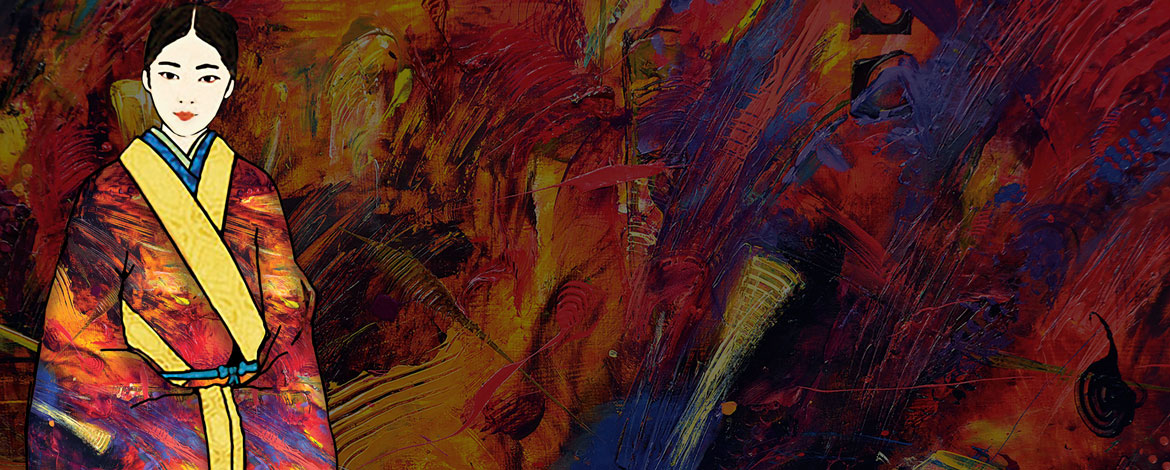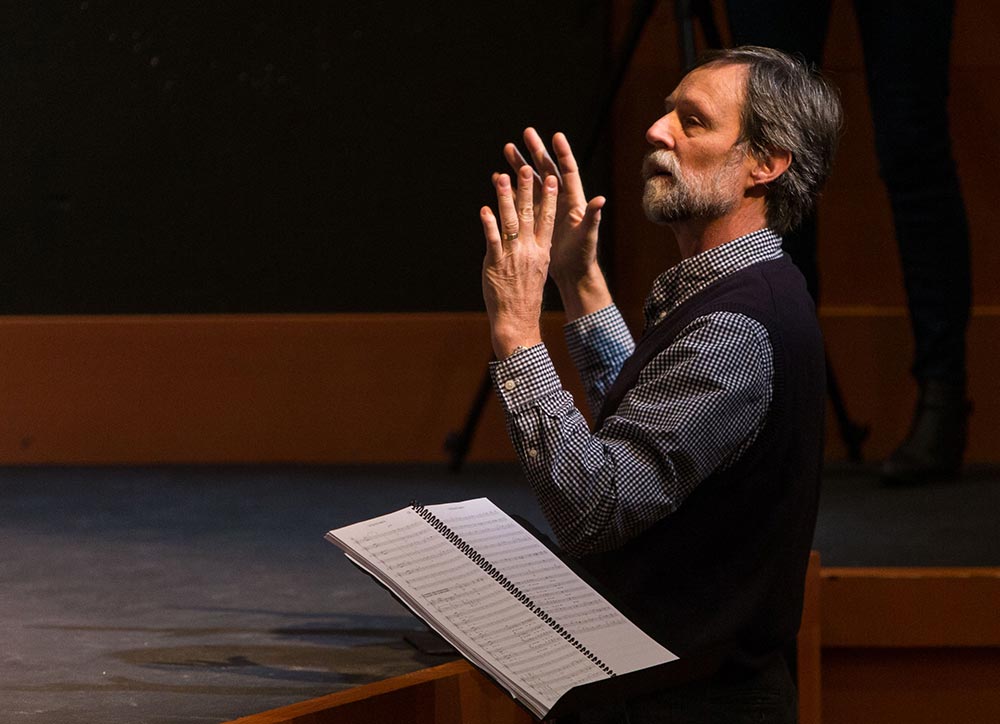PLU professor composes music for ‘timeless’ Chinese opera featuring student and faculty performers, libretto by Zhang Er

By Matthew Salzano '18
PLU Marketing & Communications
TACOMA, WASH. (Oct. 20, 2016)- In the opera titled “Fiery Jade — Cai Yan,” the ancient story of Chinese poet Cai Yan proves an excellent example of diverse perspectives and student-faculty collaboration.
The opera’s first production runs Nov. 17-19 at 7:30 p.m. and Nov. 20 at 3 p.m. at Pacific Lutheran University.
HOW IT’S MADE
The music for Fiery Jade is composed by Greg Youtz, PLU professor of music and composer, and the script — known as a libretto — is written by poet Zhang Er.
“I just love getting inside a poet’s words,” Youtz said. “When you set words to music, you get deeply inside the poet’s creative space.”
Youtz has been particularly fascinated with Chinese music for more than 25 years. Er is a professor at The Evergreen State College. Her academic specialties range from pharmacology to Chinese poetry, according to her faculty page. In addition, Youtz said Er loves the opera. She attends operas around the nation and routinely visits opera festivals.

After this love of opera inspired her to write a libretto, Er approached Youtz about three years ago with a draft for the opera that would become Fiery Jade, Youtz said. He set it to music, just to see how it felt.
He ended up writing three scenes, and with the help of some PLU singers and software simulating an entire orchestra, they got to hear some of their work. “She was very intrigued with the music,” Youtz said. They decided to stop in the face of uncertainty.
“Why would you write an entire opera if you don’t have a performance in mind?” Youtz pointed out. “That would be a lot of work, and maybe for nothing.”
But then James Brown, chair of vocal studies and director of PLU’s opera programs, started talking with Youtz. They agreed fall 2016 would be the time to just “go for it,” as Youtz described it. Youtz quickly wrote the rest of the opera and turned it over to Brown, who was tasked with bringing it from page to stage.
“At first — I have to be honest — I was a little daunted by the difficulty of the music,” Brown said. “I’ll admit I was worried that our students wouldn’t respond well, but they have and they’re doing great with it.
“Everyone is really gonna love this piece. It’s really timeless.”
DIVERSE PERSPECTIVES
“It’s a pretty feminist take on what is a very patriarchal ancient culture, and maybe that, in some ways, is the point,” Youtz said.
Cai Yan was born in 177 A.D., and the opera follows her life as a “a daughter, a wife, a mother, a poet and musician,” according to a statement at the beginning of the libretto. As the daughter of a former prime minister, she was subject to exploitation but was also afforded an opportunity for immense agency — this was uncharacteristic for women at the time.
Er’s libretto includes a statement about the work that details why Cai Yan is a figure important to modern time.
“Although the heroine lived one thousand eight hundred years ago, her story speaks to the tragedies still faced by contemporary women, such as domestic violence, losing loved ones, being abducted and raped in war, among others.”
With women being abducted by ISIS or fleeing their homes in Syria with their families, Youtz points out that the themes explored in this opera are extremely relatable.
“It’s the same old story. We’re still living in a world where these things happen,” Youtz said. “We’re still asking these questions: ‘how does one survive such a thing?’ and ‘how does one retain one’s honor, one’s virtue, one’s sense of right and wrong in the midst of this kind of thing?’”
STUDENT-FACULTY COLLABORATION
One of the hallmarks of a PLU education is close relationships and collaboration between students and faculty.
“This is the music department doing that in a big, deep way,” Youtz said of Fiery Jade. “Not only are (students and faculty) going to perform it together, but we’re inventing it together.”
In this brand new show, undergraduate students are directly involved. On stage, undergraduate students are given the opportunity to perform in roles that would usually be held for graduate students in larger programs.
“They’re creating their roles, really, in real time,” said Brown, the vocal studies chair, “which is really exciting.”
Ally Atwood and Katie Beck have the tremendous task of playing Cai Yan, alongside understudy Marissa Moultrie.
Senior Sarah Martin, who plays Cai Yan, said it was “an honor and privilege to bring these characters to life for the very first time and to present such an incredible story.”
In the orchestra, students play alongside faculty members. Brian Galante, associate director of choral studies, is the opera’s chorus master and one of the choirs he conducts, University Chorale, will be the chorus for Fiery Jade.
“It’s a huge departmental collaboration, which is a lot of fun,” Brown said.



